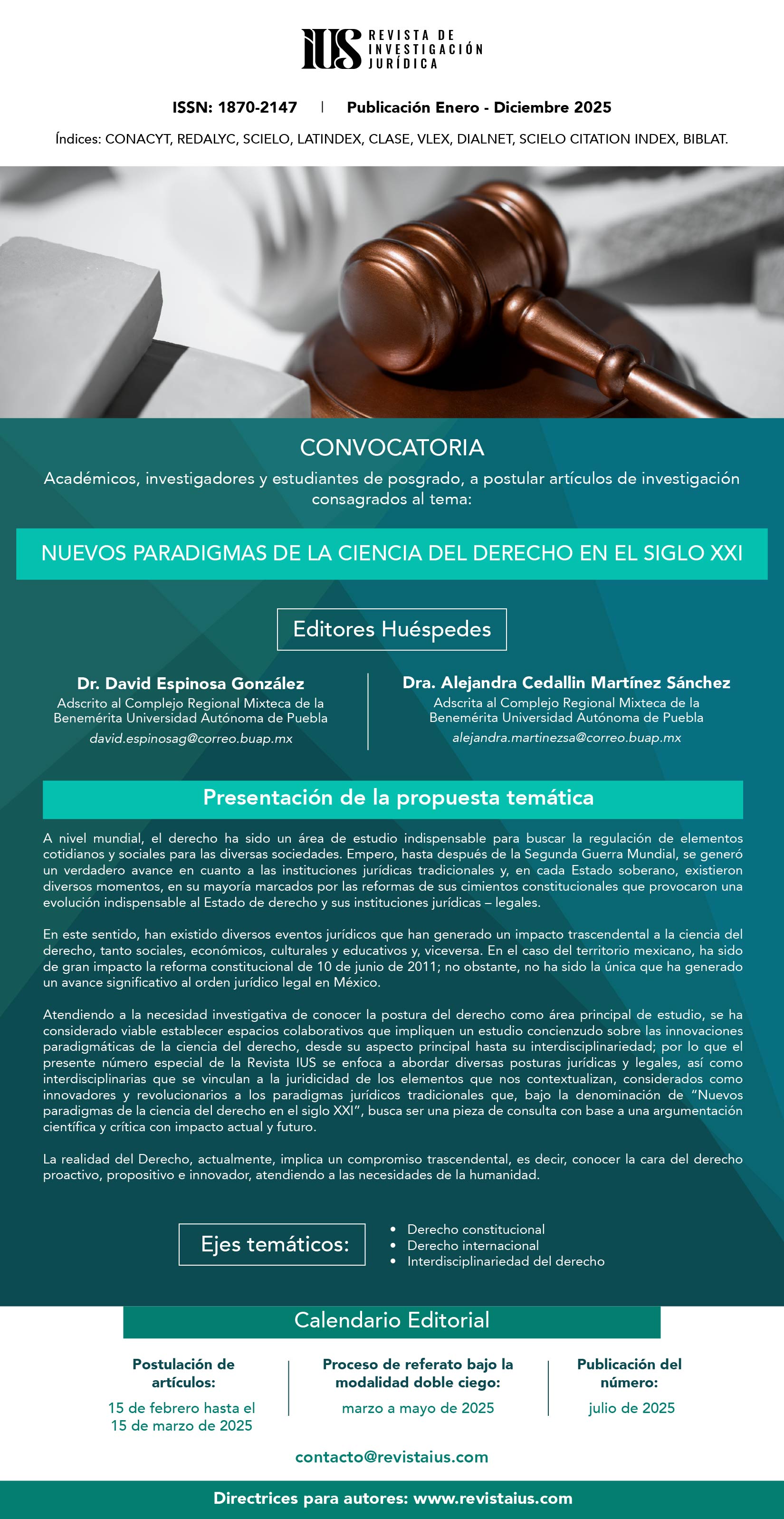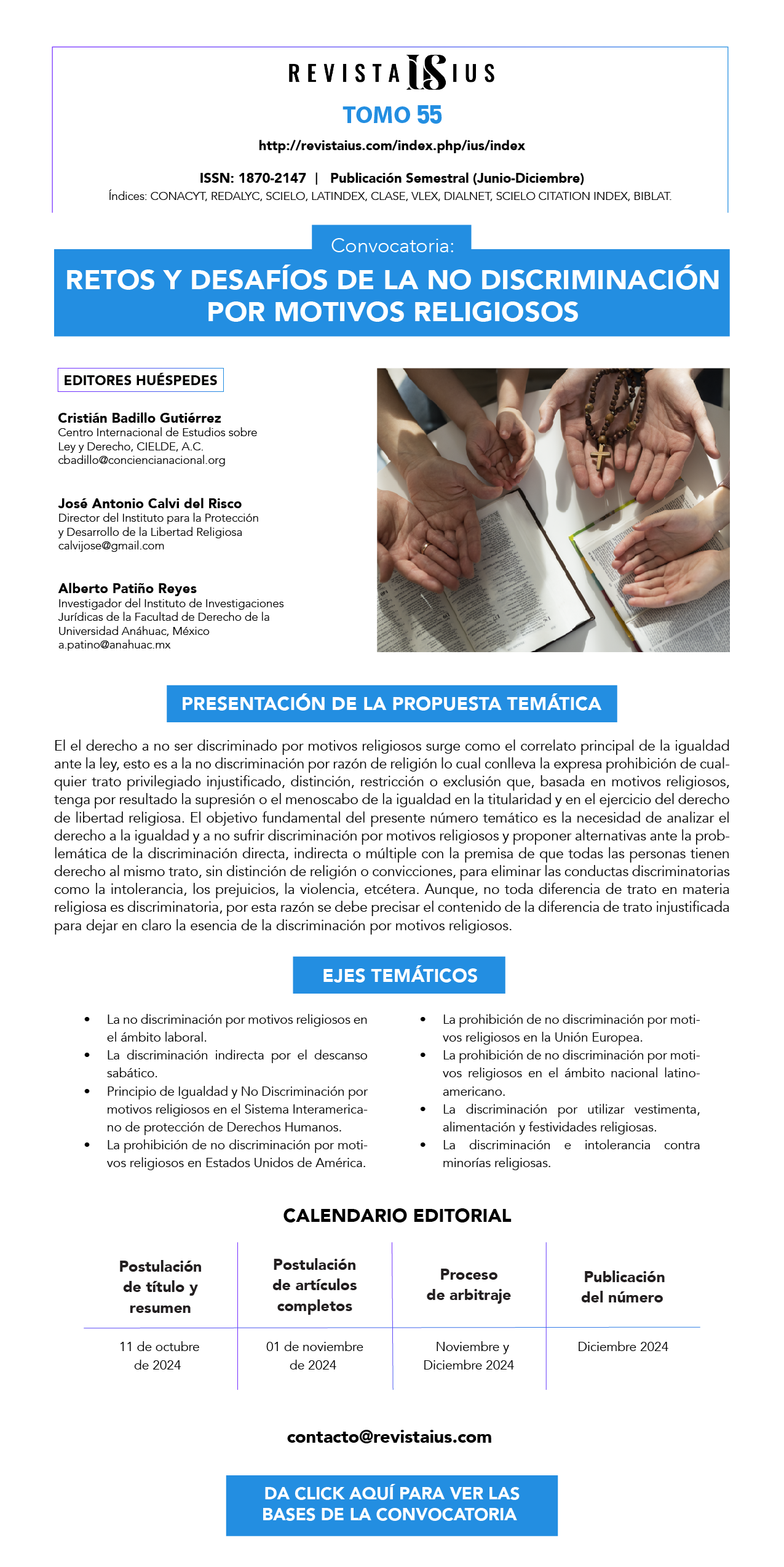El derecho humano al trabajo y su dimensión protectora en la norma laboral mexicana
DOI:
https://doi.org/10.35487/rius.v14i45.2020.632Abstract
Este artículo presenta un estudio de los derechos humanos y los derechos fundamentales de los trabajadores a partir del sistema jurídico nacional e internacional para evidenciar su interacción y el carácter multidimensional de la norma laboral. Intenta dilucidar la dimensión de protección del derecho del trabajo en el sistema jurídico mexicano. El objetivo es analizar y exponer el marco de protección del derecho del trabajo a la luz del principio pro homine y el efecto erga omnes. Se propone defender la protección de los derechos de los trabajadores de forma multidimensional para de ser practicable mejorar la impartición de justicia desde una concepción integral del derecho, la cual redundará en el beneficio de una tutela judicial garantizada. Al respecto es necesario comprender la multidimensionalidad de la norma laboral en relación con la aplicación de los instrumentos jurídicos internacionales en materia de derechos humanos laborales como garantía de su cumplimiento a fin de contribuir a la argumentación jurídica y la práctica del Derecho del Trabajo mexicano.Downloads
Downloads
Published
Issue
Section
License
Revista IUS, published by the Legal Sciences Institute of Puebla A.C., is distributed under the Creative Commons Attribution-NonCommercial 4.0 International (CC BY-NC 4.0) license.
We authorize collaborators to upload a copy of their published work on their personal websites or any Open Access repository, provided that Revista IUS is specifically cited as the original source, indicating the year and issue of the respective example and adding the link to the webpage on which this publication can be freely consulted in toto and without charge: http://www.revistaius.com
Readers are free to:
Share, copy and redistribute the material via any medium or format.
The licensor cannot revoke these freedoms as long as you follow the license terms.
Under the following terms:
Attribution: You must give appropriate credit, provide a link to the license, and indicate if changes were made.
You may do so in any reasonable manner, but not in any way that suggests the licensor endorses you or your use.
NonCommercial – You may not use the material for commercial purposes.
If you remix, transform or build upon the licensed material, its distribution is not permitted.
Charges for managing articles: Revista IUS will not charge for receiving, processing or publishing articles (Article Processing Charge, or APC) submitted by authors.





